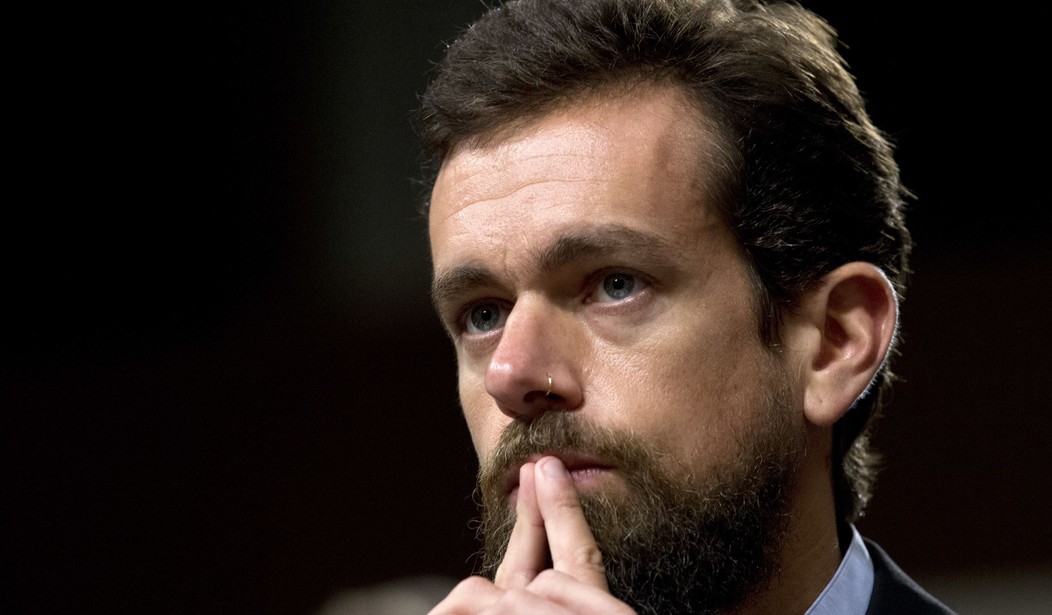In a previous article, I suggested that Jack Dorsey might not really have been the villain in the Twitter censorship story. (Sorry… “content moderation.”) People below him, particularly Yoel Roth, may have been calling the shots in a far more “hands-on” manner and possibly even keeping Dorsey out of the loop. But that’s not stopping the former Twitter CEO from taking responsibility for what happened. Business Insider reports this week that a recent blog post from Dorsey shows him owning up to what happened and admitting that he did “the wrong thing for the internet and society” when establishing and enforcing the content moderation protocols at the company.
In a Tuesday blog post, former Twitter CEO Jack Dorsey weighed in on the revelations made in the “Twitter Files” and said that under his leadership he led the social media platform to do the “wrong thing for the internet and society.”
The post first outlined Dorsey’s thoughts on “principles” about social media he has come to believe: (1) That social platforms “must be resilient to corporate and government control,” (2) “only the original author may remove content they produce,” and (3) “moderation is best implemented by algorithmic choice.”
“The Twitter when I led it and the Twitter of today do not meet any of these principles. This is my fault alone,” Dorsey wrote in the post, saying he “gave up pushing for” the principles when an unnamed “activist entered stock in 2020.”
All three of the principles that Dorsey sets forth in the first post seem to be significant and they encapsulate all of the turmoil surrounding the larger social media platforms today. The first refers to the need to ensure that the platforms are “resilient to corporate and government control.” The two key words there are “corporate” and “government.” If by “corporate” he means the corporation owning the platform (which makes sense), he was the CEO of the company. Unless he’s making a reference to the board of directors, how could it not be under his control? But in a company like Google, for example, there can be many steps higher up the ladder, including at Alphabet, where there should be little to no day-to-day interference with the platform’s operation.
The reference to “government” sound more like an admission of guilt than anything else. We’ve yet to see any definitive proof that Dorsey himself was getting messages from the Biden campaign in 2020 or sitting in on weekly meetings with the FBI. Again, that was Roth as far as we know. But could he really have been ignorant that such things were going on? It seems unlikely. Perhaps he regrets not putting a stop to it.
The second principle declares that only the original author can remove their own content. “Remove” is different than “suppress,” as was seen in all of the shadow banning. Typically, users used to get a temporary suspension and a notification saying that a particular tweet was a “vio” (as the Twitter team puts it) and that the user would need to remove it to have their account restored. Is this an indication from Dorsey that tweets were actually being deleted without the account owner being aware of it? If so, that would be another significant development in the story.
The final principle proposes that any moderation taking best is best handled by algorithms. This sounds like another shot at Roth and his crew. If algorithms handled all moderation, then the rules would have applied equally to all users. But that obviously wasn’t the case, particularly when it came to Donald Trump, Libs of TikTok, and many prominent conservative accounts. The home office was putting their thumb on the scale and suspending accounts even when they admitted that there was no clear indication that any of the rules that might have been caught by an algorithm had been broken.
Dorsey’s admission that “social media companies have amassed too much power” sounds very much like he’s experiencing some level of remorse. That’s one of the most obvious statements I’ve heard in a while, but noting that it’s happening doesn’t really do anything to resolve the issue. Google and Facebook also have vastly too much power and have demonstrated a propensity to abuse that power. But neither of them has someone like Elon Musk riding to the rescue to try to rectify the situation. And since the Justice Department under the current administration will obviously not be moving to investigate someone silencing Joe Biden’s critics, there won’t be any changes on the way any time soon.
So what’s the current verdict at this stage of the game? Is Jack Dorsey off the hook? Or is he still one of the people wearing the black hats? Personally, I’m still on the fence.








